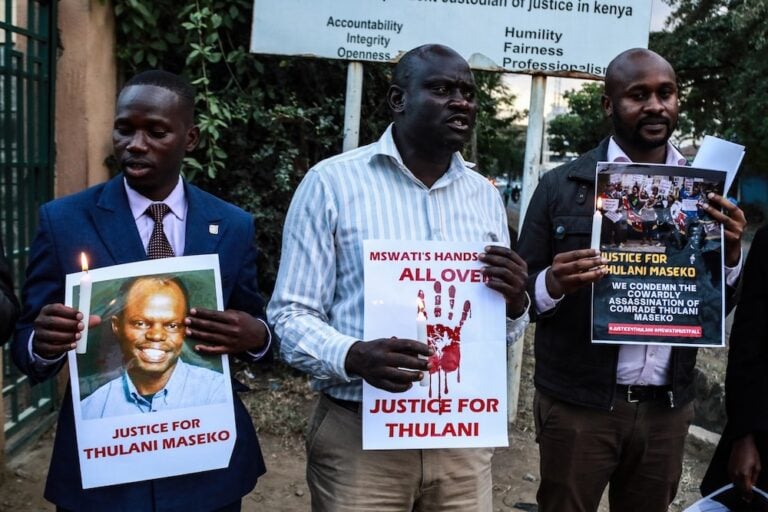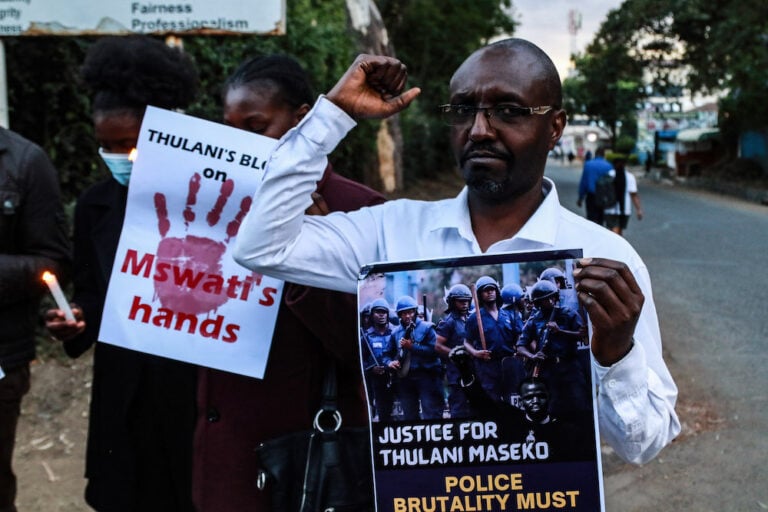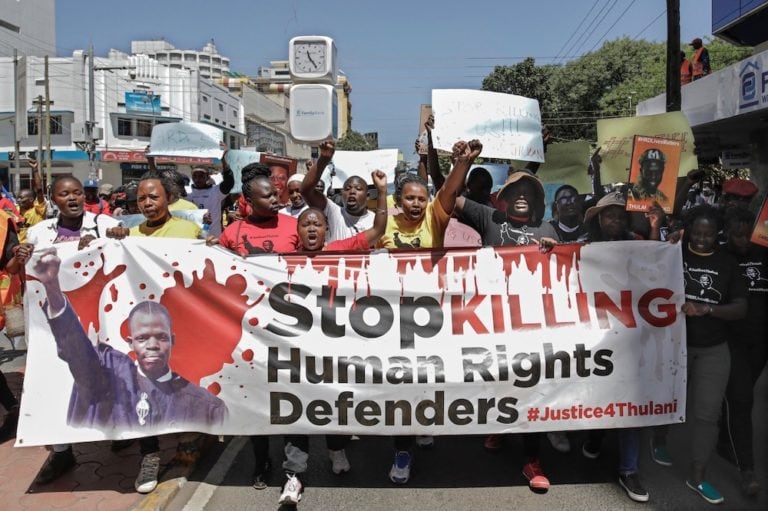They don't write for The New York Times or The Daily Mail. And the Swazi government is counting on just that to keep Bheki Makhubu and Thulani Maseko in jail for criticizing the judiciary.
The 24 IFEX members listed below strongly condemn the continued imprisonment of editor Bheki Makhubu and human rights lawyer Thulani Maseko in Swaziland. March 18 2015 marks one year since the pair were imprisoned following an unconstitutional closed court hearing.
Makhubu and Maseko were charged in connection to separate articles criticising the Swazi judiciary, which appeared in the independent news magazine, The Nation. They were convicted of contempt of court on 17 July 2014 and later sentenced to two years in prison. Both The Nation and Swaziland Independent Publishers were also fined E50,000 respectively.
The ruling was unreasonably severe and in clear conflict with Swazi citizens’ constitutional right to freedom of expression. We consider these men to be prisoners of conscience.
The articles in question were critical of the Swazi judiciary, most notably the handling of a particular case by Chief Justice Michael Ramodibedi. The authorities claim the articles interfered with the administration of justice by commenting on a case still pending before a court. We maintain that the pair was legitimately exercising their right to freedom of expression in commenting on the conduct of the judiciary.
In addition to having their right to freedom of expression violated, Makhubu and Maseko were also denied their constitutional right to a fair trial. The judge presiding over their case, Judge Simelane, was mentioned in the articles that were the subject of the trial. He was called upon to recuse himself from the trial, but did not. Consequently, after a closed court hearing, Makhubu and Maseko were convicted of contempt of court and sentenced to two years in prison.
The judicial harassment of critical voices in Swaziland is not isolated to the case of Maseko and Makhubu, but is rather part of a disturbing trend to silence freedom of expression in the country. For example, there are 32 laws in Swaziland that place restrictions on freedom of expression and access to information, and political parties have been banned since 1973.
In September 2013, King Mswati III changed the name of Swaziland’s political system to a “monarchical democracy,” describing it as a “marriage between the traditional monarchy and the ballot box”. But as some free expression advocates have noted, the rebranded political system has not improved the country’s free expression landscape.
As organisations concerned with the fundamental right to freedom of expression, we thus urge the Swazi Government and King Mswati III to:
- Comply with the constitutional guarantees of the right to freedom of expression, the right to a fair trial, and the right to freedom of assembly and association.
- Overturn the convictions against Bheki Makhubu and Thulani Maseko.
- Immediately and unconditionally release all prisoners of conscience and political prisoners.
- Ensure the judiciary respects the rule of law and maintains its independence, and for judges to uphold their responsibility to apply the law fairly and impartially.
We also call on the Special Rapporteurs of the African Commission on Human and Peoples’ Rights to:
- Follow-up on their statement issued in support of Makhubu and Maseko in 2014.
- Further appeal for broader support from Heads of State to deliberate on the appalling human rights record of the Kingdom of Swaziland.
- Call upon the Southern African Development Community (SADC)’s Heads of State to develop a mechanism that holds member states accountable to human rights norms and standards at both continental and sub-regional levels.



